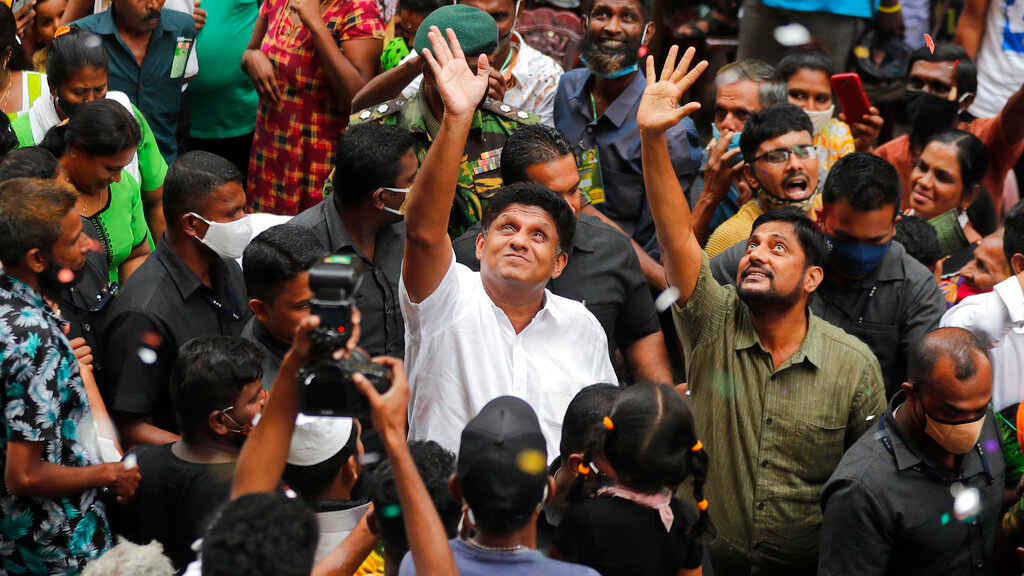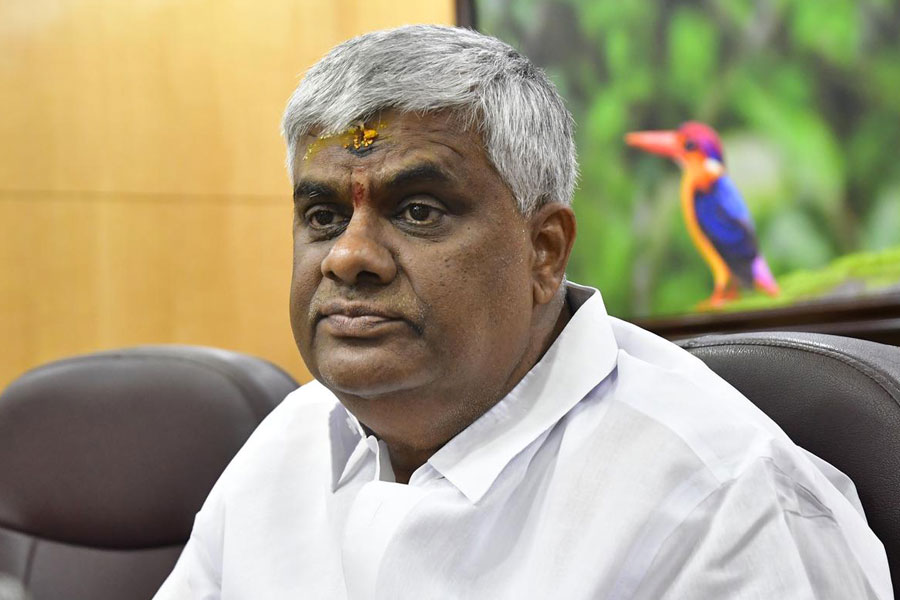The campaigning for the Sri Lankan parliamentary elections scheduled on August 5 ended yesterday. Pundits have predicted the outgoing prime minister, Mahinda Rajapaksa, to be the frontrunner in the race. This could be a reason to rejoice for the Sinhalese Buddhist majority in the country but the ethnic and religious minorities — Tamils and Muslims — feel threatened.
On many occasions, the Rajapaksas — Mahinda and his brother, the current president, Gotabaya Rajapaksa — have expressed their desire to repeal the 13th and 19th amendments, which give powers to the provincial councils, and dilute the powers of the executive presidency, respectively. If the 13th amendment is abolished, whatever limited powers that lie with the provincial councils, including the one in the Northern Province that came into effect only in 2013, will be negated. The centralized powers will not make much difference to the welfare of the Sinhalese Buddhists living largely in the other provinces but the Tamils and Muslims, mostly residents of the Northern and the Eastern provinces, will be the real sufferers because they would have to live at the mercy of a Sinhalese-majority central government.
Similarly, the abolition of the 19th amendment could take the Rajapaksas towards authoritarianism. This would mean that there would be no investigation of human rights violations by the security forces during the civil war against the Liberation Tigers of Tamil Eelam as promised to the UN Human Rights Council by the previous government. According to Mahinda Rajapaksa, it is only by repealing the 19th amendment that Sri Lanka will be able to deliver a “strong government”.
The Rajapaksas are campaigning solely on a nationalist platform, projecting their family as ‘protectors’ of the Sinhalese Buddhist population. This strategy worked during the 2019 presidential elections that led to Gotabaya Rajapaksa’s win with overwhelming support from the majority-dominated areas in the southern part of the country. The election results reflected polarization along community lines, and were termed ‘unprecedented’ in Sri Lankan history.
With 75 per cent Sinhalese and 15 per cent Tamils, there has always been an anti-Tamil sentiment in the country. But in the recent past, there has been a rise of hatred against the 9.7 per cent Muslim population too, especially after the Easter bombings last year that killed over 270 people in Negombo, Batticaloa and Colombo.
The victimization of minorities in Sri Lanka is somewhat similar to what their counterparts are facing in India. Despite his claim of ‘Sabka Saath, Sabka Vikas, Sabka Vishwas’, the prime minister, Narendra Modi, has alienated Indian Muslims. After winning 300-plus seats in the Lok Sabha last year, Modi has brought in the Citizenship (Amendment) Act that would grant citizenship to people of all faiths except Islam from neighbouring Afghanistan, Pakistan and Bangladesh even if they had entered India illegally. On the floor of the Indian Parliament, the home minister, Amit Shah, said that the National Register of Citizens, which would make vulnerable people Stateless if they failed to produce requisite papers, would be implemented across the country. The message of Modi-Shah to their right-wing Hindu constituency was loud and clear — even if the CAA can save stateless people of all religions, it won’t save the Muslims. This assurance would make Hindu nationalists feel ‘safe’ because their biggest fear is that Muslims — the ‘invaders’ — would take over India one day, reducing them to a minority group.
Mahinda Rajapaksa has a similar message for the Sinhalese Buddhist nationalists: Sri Lanka belongs to them and the Tamils and Muslims are their ‘permanent threats’.
Having witnessed the mass exodus of Rohingya Muslims from neighbouring Buddhist-dominated Myanmar, Sri Lankan Muslims fear that they might face systematic ostracization at the hands of Buddhists. The involvement of a local Islamist group in the Easter bombings has led to large-scale demonization of the community. Sri Lanka’s Muslim-owned businesses have faced a social boycott by Buddhists after nationalist monks led a hate campaign against them.
Riding high on this anti-minority narrative, Rajapaksa is most likely to defeat a weak and divided opposition, the United National Party, and win the 113 seats required to prove his majority in the 225-member House. But he would need a two-thirds majority in Parliament to repeal the 13th and 19th amendments; this would be possible with the support of minority parties. To achieve this goal, Rajapaksa’s Sri Lanka Podujana Peramuna is most likely to engage in horse-trading to bring in some Muslim parties, independent Tamil candidates and small Tamil parties under its fold.
The major Tamil party, the Tamil National Alliance, however, said it will extend its support to the Rajapaksas to gain a two-thirds majority if they fulfil the political aspirations of the Tamils through a new Constitution. A senior leader of the TNA has said, “If the Rajapaksas govern the country in a more progressive way in future, we will not oppose them.”
Ironically, what may seem to be progressive for a party driven by the interests of the Sinhalese Buddhist majority may not be progressive for the minorities.










